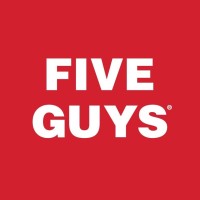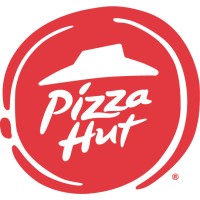
Five Guys Enterprises Company Cyber Security Posture
fiveguys.comHistory: *1986: The first Five Guys location opens in Arlington, VA. *1986 - 2001: Five Guys opens five locations around the DC metro-area and perfected their business of making burgers… and starts to build a cult-like following. * 2002: Five Guys decides DC metro-area residents shouldn't be the only ones to experience their burgers and start to franchise in Virginia and Maryland. * 2003: Five Guys sells out of franchise territory within 18 months and starts to open the rest of the country for franchise rights. * 2003 - 2012: Five Guys expands to over 1,000 locations in the U.S. and Canada. * In July 2013, Five Guys opens the first location outside of North America in London, England. * Our International HQ in Amsterdam, NL opened in 2016. * Today, we have more than 1,900 locations open in North America, Canada, UK, Middle East, Europe, APAC and growing.
FGE Company Details
five-guys-enterprises
9893 employees
53081.0
722
Restaurants
fiveguys.com
Scan still pending
FIV_1344573
In-progress
Between 900 and 1000
This score is AI-generated and less favored by cyber insurers, who prefer the TPRM score.
 FGE Global Score
FGE Global Score.png)

Five Guys Enterprises Company Scoring based on AI Models
| Model Name | Date | Description | Current Score Difference | Score |
|---|---|---|---|---|
| AVERAGE-Industry | 03-12-2025 | This score represents the average cybersecurity rating of companies already scanned within the same industry. It provides a benchmark to compare an individual company's security posture against its industry peers. | N/A | Between 900 and 1000 |
Five Guys Enterprises Company Cyber Security News & History
| Entity | Type | Severity | Impact | Seen | Url ID | Details | View |
|---|---|---|---|---|---|---|---|
| Five Guys Enterprises | Data Leak | 85 | 4 | 12/2022 | FIV22269123 | Link | |
Rankiteo Explanation : Attack with significant impact with customers data leaksDescription: Five Guys Enterprises, LLC suffered a data breach after a cyberattack compromised confidential information related to individuals who applied to work for the company. An unauthorized party gained access to job applicants’ full names, Social Security numbers, driver’s license numbers and financial account information. Five Guys sent out data breach notification letters to all individuals after consumer data was leaked. | |||||||
Five Guys Enterprises Company Subsidiaries

History: *1986: The first Five Guys location opens in Arlington, VA. *1986 - 2001: Five Guys opens five locations around the DC metro-area and perfected their business of making burgers… and starts to build a cult-like following. * 2002: Five Guys decides DC metro-area residents shouldn't be the only ones to experience their burgers and start to franchise in Virginia and Maryland. * 2003: Five Guys sells out of franchise territory within 18 months and starts to open the rest of the country for franchise rights. * 2003 - 2012: Five Guys expands to over 1,000 locations in the U.S. and Canada. * In July 2013, Five Guys opens the first location outside of North America in London, England. * Our International HQ in Amsterdam, NL opened in 2016. * Today, we have more than 1,900 locations open in North America, Canada, UK, Middle East, Europe, APAC and growing.
Access Data Using Our API

Get company history
.png)
FGE Cyber Security News
Gemspring acquires Goodyear's chemicals business, H.I.G. invests in cybersecurity
Gemspring Capital Management entered into a definitive agreement to acquire The Goodyear Tire & Rubber Company's polymer chemicals business.
Privacy & Information Security Law Blog
This year's publication highlights key topics including cyber insurance, cybersecurity and privacy accountability, M&A activity, regulation and litigation.
Enterprise executives cite AI-assisted attacks as top emerging risk, Gartner finds
AI-assisted attacks were the top emerging business risk through the first three quarters of the year, Gartner said in a Friday report. Four in 5 ...
Top 8 in-demand cybersecurity jobs for 2025 and beyond
In general, security software developers are in great demand and have plenty of opportunities in IoT and other emerging areas of technology.
Data resilience: Veeam's role in ensuring business continuity
Explore how Veeam drives business continuity, security and innovation in today's digital landscape through data resilience.
Musk’s DOGE teen was fired by cybersecurity firm for leaking company secrets
Edward Coristine, a 19-year-old member of Elon Musk's squad was fired from an internship after he was accused of sharing information with a ...
Top Cyber Threats To Watch Out For In 2025
The forum outlined the top five threats that organizations must address to navigate an increasingly unpredictable digital landscape.
Top 10: Cybersecurity Leaders
These cybersecurity leaders are committed to tackling a continually evolving cyber threat landscape and protecting vital enterprise and customer data.
By the Numbers: 50 Cyber Crime Statistics for 2025
Get the latest cyber crime statistics, facts, and trends that will provide you with clarity about what threats to look out for in 2025.

FGE Similar Companies

Pizza Hut
Pizza Hut, a subsidiary of Yum! Brands, Inc. (NYSE: YUM), was founded in 1958 in Wichita, Kansas, and since then has earned a reputation as a trailblazer in innovation with the creation of icons like Original® Pan and Original® Stuffed Crust pizzas. In 1994, Pizza Hut pizza was the very first online

Chick-fil-A Corporate Support Center
At its Atlanta headquarters, known as the Corporate Support Center, Chick-fil-A, Inc. offers full-time careers in various fields such as Digital Transformation & Technology, Financial Services & Accounting, Enterprise Analytics, Restaurant Development, Early Talent Programs and more. Our team of mor

Yum China
Yum China Holdings, Inc. (the “Company” or “Yum China”) (NYSE: YUMC and HKEX: 9987) is China’s largest restaurant company with a mission to make every life taste beautiful. From a single restaurant in 1987, the Company now operates over 14,000 restaurants in over 1,900 cities and towns spa

Papa Johns
Papa Johns seeks people who have an entrepreneurial spirit and share our philosophy for success. Hands-on training, a clean and safe work environment, quality business practices, advancement opportunities and meaningful work combine to produce not only the best pizza, but also the best team members!

Red Robin
Since opening in 1969 in Seattle, Washington, Red Robin has welcomed Guests to our casual dining restaurants in the U.S. and Canada, connecting people around craveable food and fun in a relaxed, playful atmosphere. Our people are the foundation of our success. We aim to be an inclusive employer of

Grand Lux Cafe
The idea for Grand Lux Cafe came to life when The Venetian Resort, Hotel and Casino in Las Vegas asked David Overton, Founder of The Cheesecake Factory Restaurants, to create an upscale casual restaurant concept for their property. Excited by the proposal and the opulent "Venetian" theme, Mr. Ov

Frequently Asked Questions (FAQ) on Cybersecurity Incidents
FGE CyberSecurity History Information
Total Incidents: According to Rankiteo, FGE has faced 1 incidents in the past.
Incident Types: The types of cybersecurity incidents that have occurred include ['Data Leak'].
Total Financial Loss: The total financial loss from these incidents is estimated to be {total_financial_loss}.
Cybersecurity Posture: The company's overall cybersecurity posture is described as History: *1986: The first Five Guys location opens in Arlington, VA. *1986 - 2001: Five Guys opens five locations around the DC metro-area and perfected their business of making burgers… and starts to build a cult-like following. * 2002: Five Guys decides DC metro-area residents shouldn't be the only ones to experience their burgers and start to franchise in Virginia and Maryland. * 2003: Five Guys sells out of franchise territory within 18 months and starts to open the rest of the country for franchise rights. * 2003 - 2012: Five Guys expands to over 1,000 locations in the U.S. and Canada. * In July 2013, Five Guys opens the first location outside of North America in London, England. * Our International HQ in Amsterdam, NL opened in 2016. * Today, we have more than 1,900 locations open in North America, Canada, UK, Middle East, Europe, APAC and growing..
Detection and Response: The company detects and responds to cybersecurity incidents through {description_of_detection_and_response_process}.
Incident Details
Incident 1: Ransomware Attack
Title: {Incident_Title}
Description: {Brief_description_of_the_incident}
Date Detected: {Detection_Date}
Date Publicly Disclosed: {Disclosure_Date}
Date Resolved: {Resolution_Date}
Type: {Type_of_Attack}
Attack Vector: {Attack_Vector}
Vulnerability Exploited: {Vulnerability}
Threat Actor: {Threat_Actor}
Motivation: {Motivation}
Incident 2: Data Breach
Title: {Incident_Title}
Description: {Brief_description_of_the_incident}
Date Detected: {Detection_Date}
Date Publicly Disclosed: {Disclosure_Date}
Date Resolved: {Resolution_Date}
Type: {Type_of_Attack}
Attack Vector: {Attack_Vector}
Vulnerability Exploited: {Vulnerability}
Threat Actor: {Threat_Actor}
Motivation: {Motivation}
Common Attack Types: As of now, the company has not encountered any reported incidents involving common cyberattacks.
Identification of Attack Vectors: The company identifies the attack vectors used in incidents through {description_of_identification_process}.
Impact of the Incidents
Incident 1: Ransomware Attack
Financial Loss: {Financial_Loss}
Data Compromised: {Data_Compromised}
Systems Affected: {Systems_Affected}
Downtime: {Downtime}
Operational Impact: {Operational_Impact}
Conversion Rate Impact: {Conversion_Rate_Impact}
Revenue Loss: {Revenue_Loss}
Customer Complaints: {Customer_Complaints}
Brand Reputation Impact: {Brand_Reputation_Impact}
Legal Liabilities: {Legal_Liabilities}
Identity Theft Risk: {Identity_Theft_Risk}
Payment Information Risk: {Payment_Information_Risk}
Incident 2: Data Breach
Financial Loss: {Financial_Loss}
Data Compromised: {Data_Compromised}
Systems Affected: {Systems_Affected}
Downtime: {Downtime}
Operational Impact: {Operational_Impact}
Conversion Rate Impact: {Conversion_Rate_Impact}
Revenue Loss: {Revenue_Loss}
Customer Complaints: {Customer_Complaints}
Brand Reputation Impact: {Brand_Reputation_Impact}
Legal Liabilities: {Legal_Liabilities}
Identity Theft Risk: {Identity_Theft_Risk}
Payment Information Risk: {Payment_Information_Risk}
Average Financial Loss: The average financial loss per incident is {average_financial_loss}.
Commonly Compromised Data Types: The types of data most commonly compromised in incidents are {list_of_commonly_compromised_data_types}.
Incident 1: Ransomware Attack
Entity Name: {Entity_Name}
Entity Type: {Entity_Type}
Industry: {Industry}
Location: {Location}
Size: {Size}
Customers Affected: {Customers_Affected}
Incident 2: Data Breach
Entity Name: {Entity_Name}
Entity Type: {Entity_Type}
Industry: {Industry}
Location: {Location}
Size: {Size}
Customers Affected: {Customers_Affected}
Response to the Incidents
Incident 1: Ransomware Attack
Incident Response Plan Activated: {Yes/No}
Third Party Assistance: {Yes/No}
Law Enforcement Notified: {Yes/No}
Containment Measures: {Containment_Measures}
Remediation Measures: {Remediation_Measures}
Recovery Measures: {Recovery_Measures}
Communication Strategy: {Communication_Strategy}
Adaptive Behavioral WAF: {Adaptive_Behavioral_WAF}
On-Demand Scrubbing Services: {On_Demand_Scrubbing_Services}
Network Segmentation: {Network_Segmentation}
Enhanced Monitoring: {Enhanced_Monitoring}
Incident 2: Data Breach
Incident Response Plan Activated: {Yes/No}
Third Party Assistance: {Yes/No}
Law Enforcement Notified: {Yes/No}
Containment Measures: {Containment_Measures}
Remediation Measures: {Remediation_Measures}
Recovery Measures: {Recovery_Measures}
Communication Strategy: {Communication_Strategy}
Adaptive Behavioral WAF: {Adaptive_Behavioral_WAF}
On-Demand Scrubbing Services: {On_Demand_Scrubbing_Services}
Network Segmentation: {Network_Segmentation}
Enhanced Monitoring: {Enhanced_Monitoring}
Incident Response Plan: The company's incident response plan is described as {description_of_incident_response_plan}.
Third-Party Assistance: The company involves third-party assistance in incident response through {description_of_third_party_involvement}.
Data Breach Information
Incident 2: Data Breach
Type of Data Compromised: {Type_of_Data}
Number of Records Exposed: {Number_of_Records}
Sensitivity of Data: {Sensitivity_of_Data}
Data Exfiltration: {Yes/No}
Data Encryption: {Yes/No}
File Types Exposed: {File_Types}
Personally Identifiable Information: {Yes/No}
Prevention of Data Exfiltration: The company takes the following measures to prevent data exfiltration: {description_of_prevention_measures}.
Handling of PII Incidents: The company handles incidents involving personally identifiable information (PII) through {description_of_handling_process}.
Ransomware Information
Incident 1: Ransomware Attack
Ransom Demanded: {Ransom_Amount}
Ransom Paid: {Ransom_Paid}
Ransomware Strain: {Ransomware_Strain}
Data Encryption: {Yes/No}
Data Exfiltration: {Yes/No}
Ransom Payment Policy: The company's policy on paying ransoms in ransomware incidents is described as {description_of_ransom_payment_policy}.
Data Recovery from Ransomware: The company recovers data encrypted by ransomware through {description_of_data_recovery_process}.
Regulatory Compliance
Incident 1: Ransomware Attack
Regulations Violated: {Regulations_Violated}
Fines Imposed: {Fines_Imposed}
Legal Actions: {Legal_Actions}
Regulatory Notifications: {Regulatory_Notifications}
Incident 2: Data Breach
Regulations Violated: {Regulations_Violated}
Fines Imposed: {Fines_Imposed}
Legal Actions: {Legal_Actions}
Regulatory Notifications: {Regulatory_Notifications}
Regulatory Frameworks: The company complies with the following regulatory frameworks regarding cybersecurity: {list_of_regulatory_frameworks}.
Ensuring Regulatory Compliance: The company ensures compliance with regulatory requirements through {description_of_compliance_measures}.
Lessons Learned and Recommendations
Incident 1: Ransomware Attack
Lessons Learned: {Lessons_Learned}
Incident 2: Data Breach
Lessons Learned: {Lessons_Learned}
Incident 1: Ransomware Attack
Recommendations: {Recommendations}
Incident 2: Data Breach
Recommendations: {Recommendations}
Key Lessons Learned: The key lessons learned from past incidents are {list_of_key_lessons_learned}.
Implemented Recommendations: The company has implemented the following recommendations to improve cybersecurity: {list_of_implemented_recommendations}.
References
Additional Resources: Stakeholders can find additional resources on cybersecurity best practices at {list_of_additional_resources}.
Investigation Status
Incident 1: Ransomware Attack
Investigation Status: {Investigation_Status}
Incident 2: Data Breach
Investigation Status: {Investigation_Status}
Communication of Investigation Status: The company communicates the status of incident investigations to stakeholders through {description_of_communication_process}.
Stakeholder and Customer Advisories
Incident 1: Ransomware Attack
Stakeholder Advisories: {Stakeholder_Advisories}
Customer Advisories: {Customer_Advisories}
Incident 2: Data Breach
Stakeholder Advisories: {Stakeholder_Advisories}
Customer Advisories: {Customer_Advisories}
Advisories Provided: The company provides the following advisories to stakeholders and customers following an incident: {description_of_advisories_provided}.
Initial Access Broker
Incident 1: Ransomware Attack
Entry Point: {Entry_Point}
Reconnaissance Period: {Reconnaissance_Period}
Backdoors Established: {Backdoors_Established}
High Value Targets: {High_Value_Targets}
Data Sold on Dark Web: {Yes/No}
Incident 2: Data Breach
Entry Point: {Entry_Point}
Reconnaissance Period: {Reconnaissance_Period}
Backdoors Established: {Backdoors_Established}
High Value Targets: {High_Value_Targets}
Data Sold on Dark Web: {Yes/No}
Monitoring and Mitigation of Initial Access Brokers: The company monitors and mitigates the activities of initial access brokers through {description_of_monitoring_and_mitigation_measures}.
Post-Incident Analysis
Incident 1: Ransomware Attack
Root Causes: {Root_Causes}
Corrective Actions: {Corrective_Actions}
Incident 2: Data Breach
Root Causes: {Root_Causes}
Corrective Actions: {Corrective_Actions}
Post-Incident Analysis Process: The company's process for conducting post-incident analysis is described as {description_of_post_incident_analysis_process}.
Corrective Actions Taken: The company has taken the following corrective actions based on post-incident analysis: {list_of_corrective_actions_taken}.
Additional Questions
General Information
Ransom Payment History: The company has {paid/not_paid} ransoms in the past.
Last Ransom Demanded: The amount of the last ransom demanded was {last_ransom_amount}.
Last Attacking Group: The attacking group in the last incident was {last_attacking_group}.
Incident Details
Most Recent Incident Detected: The most recent incident detected was on {most_recent_incident_detected_date}.
Most Recent Incident Publicly Disclosed: The most recent incident publicly disclosed was on {most_recent_incident_publicly_disclosed_date}.
Most Recent Incident Resolved: The most recent incident resolved was on {most_recent_incident_resolved_date}.
Impact of the Incidents
Highest Financial Loss: The highest financial loss from an incident was {highest_financial_loss}.
Most Significant Data Compromised: The most significant data compromised in an incident was {most_significant_data_compromised}.
Most Significant System Affected: The most significant system affected in an incident was {most_significant_system_affected}.
Response to the Incidents
Third-Party Assistance in Most Recent Incident: The third-party assistance involved in the most recent incident was {third_party_assistance_in_most_recent_incident}.
Containment Measures in Most Recent Incident: The containment measures taken in the most recent incident were {containment_measures_in_most_recent_incident}.
Data Breach Information
Most Sensitive Data Compromised: The most sensitive data compromised in a breach was {most_sensitive_data_compromised}.
Number of Records Exposed: The number of records exposed in the most significant breach was {number_of_records_exposed}.
Ransomware Information
Highest Ransom Demanded: The highest ransom demanded in a ransomware incident was {highest_ransom_demanded}.
Highest Ransom Paid: The highest ransom paid in a ransomware incident was {highest_ransom_paid}.
Regulatory Compliance
Highest Fine Imposed: The highest fine imposed for a regulatory violation was {highest_fine_imposed}.
Most Significant Legal Action: The most significant legal action taken for a regulatory violation was {most_significant_legal_action}.
Lessons Learned and Recommendations
Most Significant Lesson Learned: The most significant lesson learned from past incidents was {most_significant_lesson_learned}.
Most Significant Recommendation Implemented: The most significant recommendation implemented to improve cybersecurity was {most_significant_recommendation_implemented}.
References
Most Recent Source: The most recent source of information about an incident is {most_recent_source}.
Most Recent URL for Additional Resources: The most recent URL for additional resources on cybersecurity best practices is {most_recent_url}.
Investigation Status
Current Status of Most Recent Investigation: The current status of the most recent investigation is {current_status_of_most_recent_investigation}.
Stakeholder and Customer Advisories
Most Recent Stakeholder Advisory: The most recent stakeholder advisory issued was {most_recent_stakeholder_advisory}.
Most Recent Customer Advisory: The most recent customer advisory issued was {most_recent_customer_advisory}.
Initial Access Broker
Most Recent Entry Point: The most recent entry point used by an initial access broker was {most_recent_entry_point}.
Most Recent Reconnaissance Period: The most recent reconnaissance period for an incident was {most_recent_reconnaissance_period}.
Post-Incident Analysis
Most Significant Root Cause: The most significant root cause identified in post-incident analysis was {most_significant_root_cause}.
Most Significant Corrective Action: The most significant corrective action taken based on post-incident analysis was {most_significant_corrective_action}.
What Do We Measure?
















Every week, Rankiteo analyzes billions of signals to give organizations a sharper, faster view of emerging risks. With deeper, more actionable intelligence at their fingertips, security teams can outpace threat actors, respond instantly to Zero-Day attacks, and dramatically shrink their risk exposure window.
These are some of the factors we use to calculate the overall score:
Identify exposed access points, detect misconfigured SSL certificates, and uncover vulnerabilities across the network infrastructure.
Gain visibility into the software components used within an organization to detect vulnerabilities, manage risk, and ensure supply chain security.
Monitor and manage all IT assets and their configurations to ensure accurate, real-time visibility across the company's technology environment.
Leverage real-time insights on active threats, malware campaigns, and emerging vulnerabilities to proactively defend against evolving cyberattacks.




